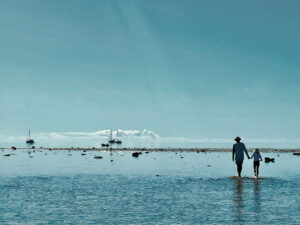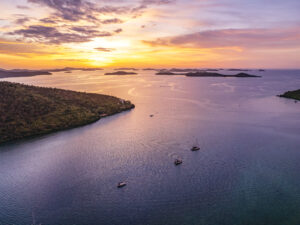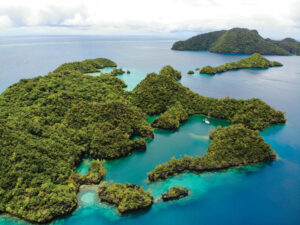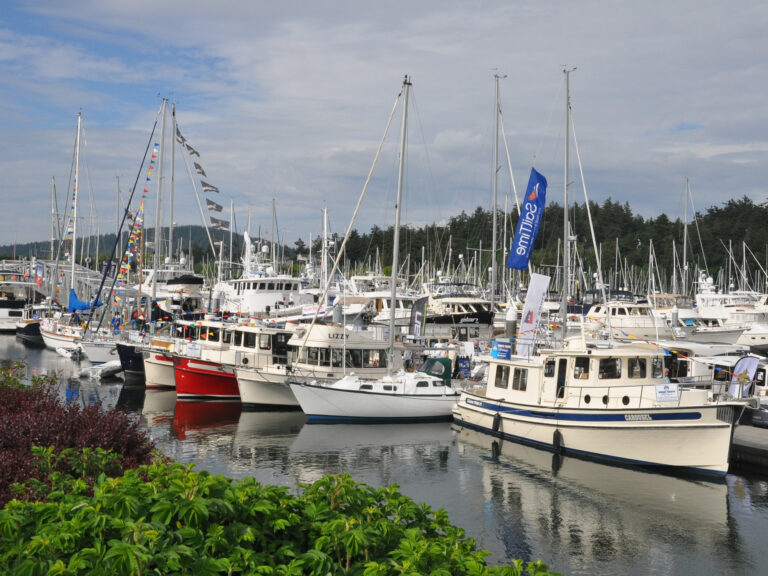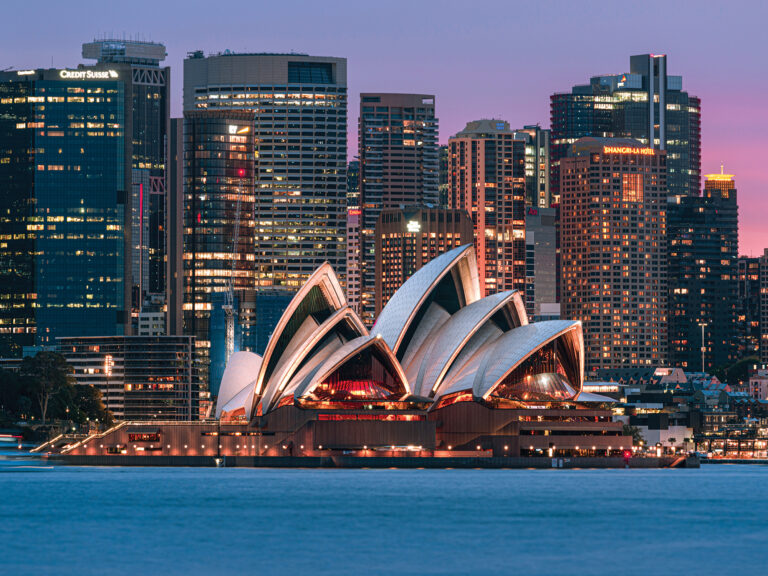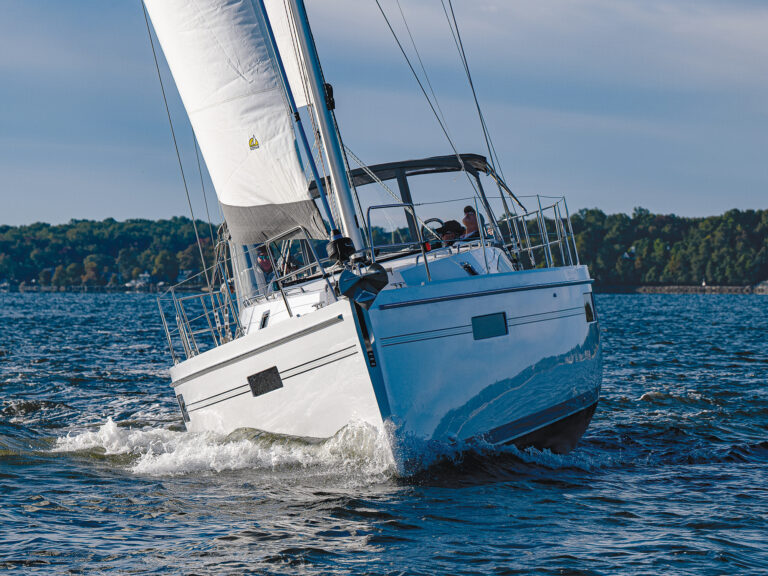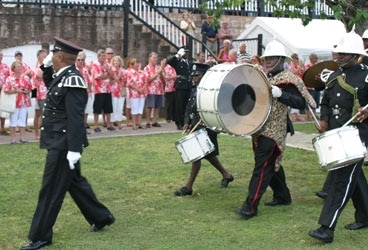
Aussies Antigua 368
“The Aussies are coming! The Aussies are coming!” So went the call around Nelson’s Dockyard on the southern shore of Antigua on a hot April afternoon. It was a somewhat circuitous tale, but the gist of the matter was simple: An Australian flotilla of charter boats was rambling about the Caribbean and was due to arrive at the Dockyard on April 24. At precisely 5 p.m. Antigua time, it would be dawn in Australia on April 25-Anzac Day-a particularly important waypoint on the Aussie calendar. And it was not going to pass unnoticed.
Before he grew old and went crazy, a youthful Mel Gibson starred in a stirring film called Gallipoli, an historical account of the horrific events that Anzac Day commemorates. Anzac is an acronym for Australian and New Zealand Army Corps. Gallipoli is the Turkish peninsula to which those troops, called Anzacs, were dispatched in April 1915. To sum up a very long story, over the next several months that year, tens of thousands of Aussie and Kiwi soldiers were massacred on the beach in one of the most ghastly slaughters of World War I. It’s been said that a generation of children in Australia and New Zealand grew up without the fathers who lost their lives on those distant shores.
And so, as advertised, just moments before five on April 24, the dots between that awful, distant battle and the current here-and-now were duly connected when some 40-odd Australian sailors, all done up in red flowered shirts, strolled up to the lawn at Nelson’s to pay their respects for their fallen countrymen. At precisely the same instant, in Sydney and Auckland and New York and London and countless other places, Australians and New Zealanders were gathering together to enact the same annual ritual. All of them shared mixed layers of sentiments.
“The Brits put us on the wrong beach,” said Australian sailor Trevor Joyce. “We got all hell kicked out of us. We were there for eight months and eventually retreated. But unofficially, Anzac Day has become our national day, a day in which we remember those guys who we figured did the right thing.”
Trevor and his wife, Maggie (a.k.a. “the Director of Peace and Harmony”), run a Sydney-based company called Mariner Boating Holidays, which organizes flotilla charters all around the world. His current group was sailing a 10-boat fleet of Lagoon cats and assorted monohulls from Guadeloupe to St. Maarten, and had pulled in to Antigua to spend a few days partying with the gang on the island for Antigua Sailing Week, which started on April 27. A fellow Aussie living in Antigua had organized the Antigua Police Band to play at the Boatyard in their honor.
The Joyces were very clear that Anzac Day means more than reliving a WWI nightmare. “Most countries celebrate victories, not losses,” said Trevor, who noted that the battle of Gallipoli was the first time Australians and Kiwis had fought under their own command, and not a British regime.
“But it has nothing to do with the military thing, really,” he said. “It’s really about our identity, our national pride, our spirit.” Indeed, Anzac Day is about mates, about having a fair go, about all the things that make Aussies and Kiwis who they are. Our Fourth of July or Veterans Day, I dare say, pale in comparison.
And so, as the musicians arrived, a big platter of traditional Anzac cookies were passed around, representative of the hard biscuits that were the only provisions for the entrenched battalion as their numbers dwindled and dwindled. Then, at five sharp, with the flags of Australia and New Zealand flying from the flagpole, the Police Band marched smartly across the pitch. It was impossible not to be moved.
They played “Waltzing Matilda” and “It’s A Long Way to Tipperary” and other songs from faraway places and times. Several of the sailors sang along. Trevor Joyce, on the porch above the lawn, unfolded a sheet of paper from his pocket and read aloud to the gathered crowd:
“They shall grow not old,
as we that are left grow old;
Age shall not weary them,
Nor the years condemn.
At the going down of the sun
And in the morning
We will remember them.”
Then came the national anthems of the respective countries, as the appropriate flags were struck in turn. Finally, the trumpeter soloed the so-called “Last Post;” I think I heard a pin drop. It was very, very dusty on the quiet lawn. Many a red-shirted Aussie dabbed at the corners of his eyes.
The Police Band marched off to a long, loud round of appreciative applause and then the Aussies departed as well, to a dinner at Shirley Heights for an awards ceremony for the informal race that had occurred earlier that day. Before Trevor left, I stopped to thank him for the unexpected history lesson and the incredible moments that had just transpired.
“Pretty cool, huh?” he said, taking in the surroundings, at one time a bastion of the British Empire and its storied invincible Royal Navy.
“And it’s just fantastic that we were able to celebrate it here, in this very British place.” With that, he let loose a long chuckle, and I had to smile with him. On another island that begins with an A, but far, far from the Antipodes, a round of laughter replaced the tears.

